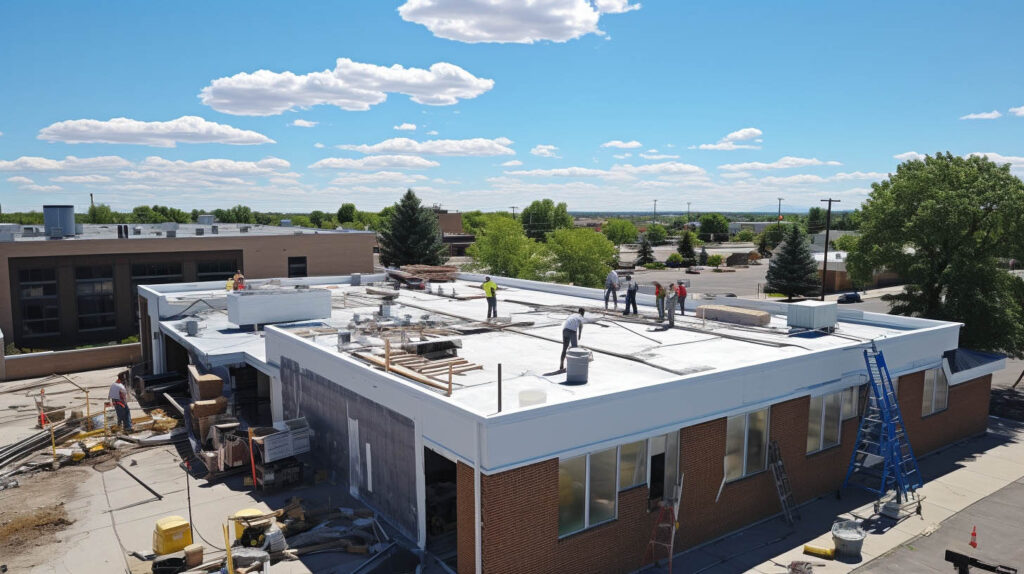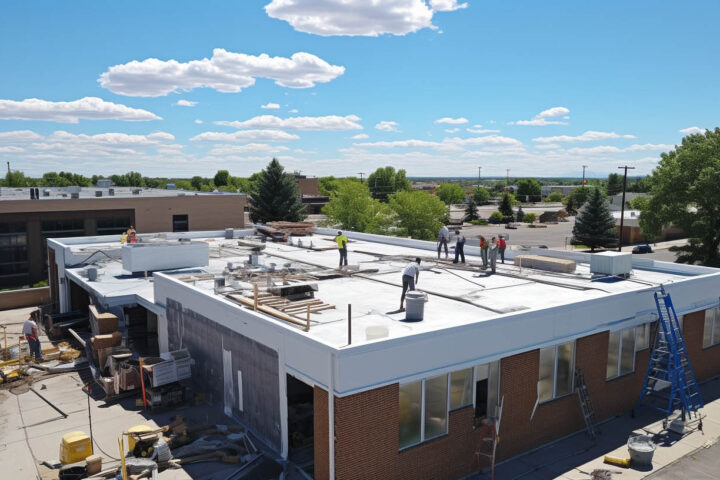
Understanding Your Commercial Roof’s Needs
Before embarking on a commercial roof renovation, it’s crucial to assess the current state of your roof. This involves determining whether a full replacement or a simple overlay is necessary. A full replacement means stripping the roof down to its deck, which, while more costly and time-consuming, is essential if foundational damage is detected. For minor issues like water damage, repairs followed by an overlay might suffice. It’s also important to ensure that the existing structure can support the weight of new materials, especially if you’re considering a change in roofing materials.
Material Inspection: Ensuring Quality and Durability
The longevity of your commercial roof heavily depends on the condition of the existing materials. Regular inspection for cracks, tears, and seam issues, particularly around installations like HVAC units, is vital. If you plan to add new materials over an existing roof, rectifying these issues beforehand is a must. In cases of full replacement, consider the insulation needs, as thicker layers might be required, necessitating removal and recycling of the old insulation.
Long-Term Vision for Your Commercial Property
As a responsible property owner, it’s important to think ahead. Consider the future uses of your building over the next decade or two. Factors like average roof wear, foot traffic, and heat exposure should influence your choice of materials. In warmer climates, reflective roofing can be a game-changer in reducing energy costs and protecting the roof. For those aiming for eco-friendliness, a vegetated roof not only saves energy but also adds aesthetic value.
Exploring Renovation Alternatives
Roof replacement isn’t always the only solution. If your roof’s structure is sound, liquid-applied coatings can be an effective way to extend its life and improve energy efficiency. However, it’s crucial to ensure that the existing roof is in good condition, as coatings are preventative and cannot fix existing damage.
Adherence to Roofing Codes and Standards
Staying updated with roofing codes and standards is imperative for commercial building owners and managers. Regular maintenance and annual inspections can prevent major issues like leaks and water damage, ensuring that your roof renovation is both compliant and timely.
Conclusion
The decision to renovate your commercial roof depends on various factors, including the current roofing system, material state, and environmental considerations. Whether it’s for aesthetic upgrades, repairs, overlays, or full replacements, the focus should always be on quality workmanship to ensure a safe and durable commercial building. At Roof Repair Specialist, we’re committed to providing top-notch roofing solutions tailored to your specific needs.




